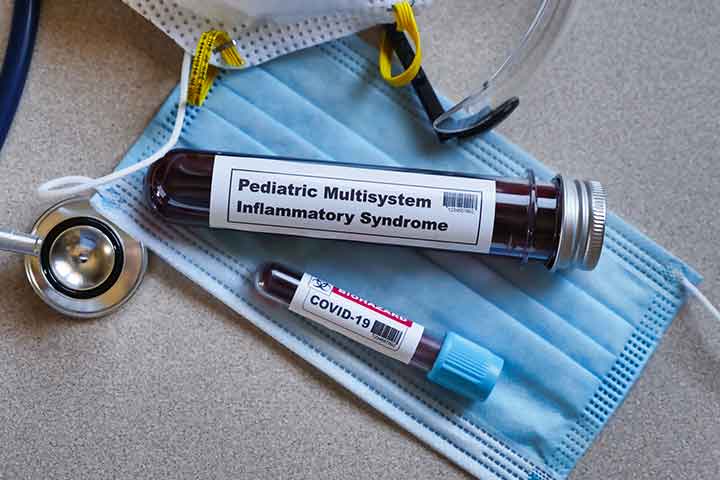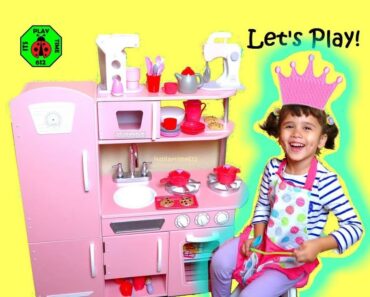image: Shutterstock
Multisystem inflammatory syndrome in children (MIS-C) is a new, serious condition linked to coronavirus disease (Covid-19). It is characterized by inflammation in various body parts, including the gastrointestinal tracts, skin, kidneys, heart, lungs, brain, and eyes. The signs and symptoms of MIS-C may vary depending on the affected parts of the body.
MIS-C is rare, and most children get better with appropriate interventions. Seek early medical care to avoid life-threatening complications if your child has MIS-C.
Read this post to learn more about the causes, signs and symptoms, complications, diagnosis, prevention, and treatment options for multisystem inflammatory syndrome in children (MIS-C).
Signs And Symptoms Of MIS-C
Children with MIS-C generally have fever and inflammation in the body, which is confirmed via laboratory analysis. Kidney injury, poor heart function, and blood clots (thrombosis) may also be seen in children with MIS-C.
The common signs and symptoms of MIS-C may include (1) (2)
- Fever for more than 24 hours
- Diarrhea
- Vomiting
- Skin rashes
- Abdominal pain
- Red eyes
- Rapid breathing
- Increased heartbeat
- Enlarged lymph nodes
- Headache
- Low blood pressure
- Lightheadedness or dizziness
- Red and swollen tongue, lips, hands, or feet
- Confusion
- Extreme tiredness
MIS-C symptoms can be similar to rare childhood conditions such as Kawasaki disease, toxic shock syndrome, or sepsis, and a few symptoms can be similar to other respiratory infections. Some children may have a mix of symptoms, while others may have symptoms specific to one of these conditions. The symptoms can be classified into the following groups (3).
- Kawasaki-like symptoms: Rashes, swollen hands and feet, red or bloodshot eyes, cracked lips, swollen tongue (strawberry tongue), and enlarged lymph nodes
- Gastrointestinal symptoms: Vomiting, diarrhea, abdominal pain, and swelling
- Respiratory symptoms: Cough and breathing issues during Covid-19 infection
- Sepsis- or toxic shock-like symptoms: High fever, rashes, rapid heart rate, and low blood pressure
Depending on the clinical features, the child’s doctor will order appropriate diagnostic tests and plan treatments.
Causes And Risk Factors For MIS-C
The exact cause of MIS-C is not yet known. However, researchers believe that excessive immune response to Covid-19 could be a risk factor for MIS-C since many affected children have antibodies against Covid-19 (3).
Early studies suggest that although MIS-C occurs in infants and older children, most affected children are between three and twelve years of age. Also, data from the U.S show an increased incidence of MIS-C in black and Latino children than in children of other races and ethnicities. However, more studies are needed to identify whether it is due to genetic factors or differences in access to healthcare (2).
Complications Of MIS-C
MIS-C is considered to be a complication of Covid-19. If left undetected and untreated, it may result in severe issues of the vital organs, such as the lungs, heart, and kidneys. In some rare cases, MIS-C could lead to permanent organ failure or even death.
Prevention Of MIS-C
Avoiding exposure to Covid-19 is the best way to prevent MIS-C in children. The following precautions may reduce the child’s risk of contracting Covid-19 infection (4).
1. Maintain hand hygiene: Wash hands frequently with soap and water for at least 20 seconds or use a hand sanitizer containing more than 60% alcohol.
2. Practice social distancing: Maintain a distance of six feet (two meters) from other people outside the home. Some countries recommend maintaining a distance of one meter in crowded areas. You may follow the social distancing protocols of your area.
3. Stay away from sick people: It is recommended to self-isolate if anyone in the family has symptoms such as fever, cough, and sneeze since the disease is contagious.
4. Avoid touching the face: Teach your children not to touch their nose, mouth, and eyes.
5. Wear face masks: Encourage your children to wear a face mask covering the nose and mouth in outdoor settings. Reusable fabric (cloth) masks can be more convenient for use.
6. Follow respiratory hygiene: All family members should follow cough and sneeze etiquette to reduce the spread of any respiratory infection. Cover the mouth with a tissue while sneezing or coughing or cough or sneeze into your elbow.
7. Disinfect surfaces: You may clean or disinfect high-touch surfaces such as door handles, remotes, keyboards, countertops, light switches, bathrooms, and chairs.
8. Wash clothes: Wash outside clothes in the washing machine or soapy water.
You may also disinfect or wash your children’s toys if they had been touched by anyone infected with Covid-19.
When To See A Doctor?
You may contact a pediatrician right away if your child has signs and symptoms of Covid-19 or MIS-C. Seek emergency care if your child has the following symptoms (1).
- Breathing problems
- Chest pain or persistent pressure
- Severe abdominal pain
- Inability to wake or stay awake
- Cyanosis (blue skin, nails, or lips)
- Pale or gray skin color
- Confusion
Diagnosis Of MIS-C
Covid-19 tests and clinical assessments help diagnose MIS-C in children. Some children with MIS-C may have negative test results, meaning they don’t have an infection at present. However, most of them could have been infected in the recent past, as is evident from a positive antibody test result (2) (5).
A positive antibody test means that the immune system has already developed proteins (antibodies) to fight against the Covid-19 virus. Some children can be asymptomatic, and blood tests may be required to confirm the infection.
The following tests are also ordered to identify other problems associated with Covid-19 in children (2) (5)
- Laboratory analyses such as urine tests and blood tests may help identify inflammatory markers. Children with suspected MIS-C require an antibody test (serology test) even if the results are positive from antigen tests or RT-PCR test.
- Imaging tests such as an echocardiogram, abdominal ultrasound, chest X-ray, MRI scan, and CT scan can help visualize inflammation in vital organs.
Doctors may order additional tests depending on the signs and symptoms to rule out sepsis or toxic shock syndrome, Kawasaki disease, and active Covid-19 infections. Although there is no evidence that MIS-C is contagious, hospitals may follow Covid-19 protocols while testing and treating the child since some children can have active Covid-19 infection.
Treatment For MIS-C
Most children with MIS-C require hospitalization, and a few may need to be treated in pediatric intensive care units. The treatment is planned depending on the severity and affected organs. Measures to reduce inflammation and supportive care are given to prevent organ damages.
Supportive care for MIS-C may include (2) (4)
- Ventilator (breathing machine)
- ECMO (extracorporeal membrane oxygenation), which does the work of the heart and lungs, may be required in some rare cases
- Oxygen supplementation to help with breathing
- IV fluids in the case of dehydration
- Medications to increase blood pressure and prevent low blood pressure related to shock or to improve heart function
- Anticoagulants such as aspirin and heparin to reduce the risk of blood clots
The following treatments are given to reduce inflammation due to MIS-C.
- Steroid therapy
- IVIG (intravenous immunoglobulin), a product made up of antibodies. Antibodies are tested before administering IVIG treatment.
- Targeted therapies to reduce proteins such as cytokines that can cause inflammation
The treatment plan may vary in children with active Covid-19 infections and MIS-C. You may discuss with the pediatrician to know the best care for your child based on their condition.
Studies are ongoing to understand the cause and pathophysiology of MIS-C after or during Covid-19 infection. No data are available to ascertain if children with specific health issues are more vulnerable to MIS-C. The information given in this post is based on the recommendations and details about MIS-C at present. Following Covid-19 protocols and seeking early medical care is the best way to avoid MIS-C and its complications.


































